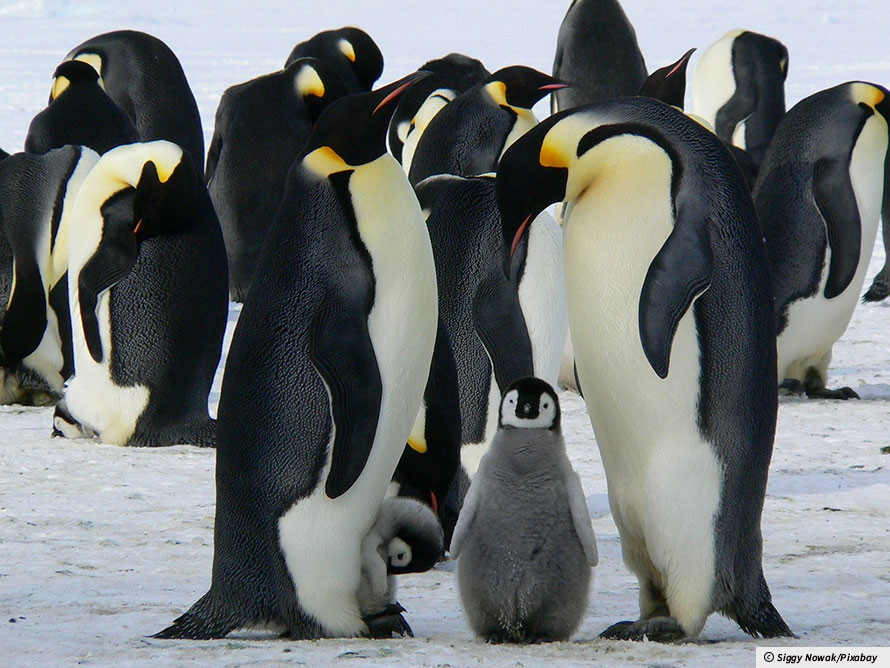Is humanity mad? The evidence that we are smashing our own home to bits is piling up, yet we carry on like nothing is wrong. Some say it is a sign we are at the end of our tether.
‘Mind-boggling’ leap of 38.5C in Antarctic
 At risk: Thousands of penguin chicks drowned last year when ice broke up before they could fully fledge.
At risk: Thousands of penguin chicks drowned last year when ice broke up before they could fully fledge. Glossary
Antarctica - The most southerly continent, surrounding the South Pole. Its area is estimated at 5.5 million square miles, most of it covered in ice.
Friedrich Nietzsche - A German classical scholar, philosopher, and critic of culture (1844 – 1900), who became one of the most influential of all modern thinkers.
Lu Xun - A leading figure of modern Chinese literature, born in 1881.
Cannibal - A person who eats the flesh of other human beings.
Allegory - A story or poem that has a hidden moral or political meaning.
Utilitarianism - A theory of morality invented by English thinker Jeremy Bentham, who also devised a special kind of prison known as a panopticon.
Fossil fuels - Fuels made from decomposing plants and animals, including coal, natural gas and oil. These fuels release carbon dioxide, causing global warming.
